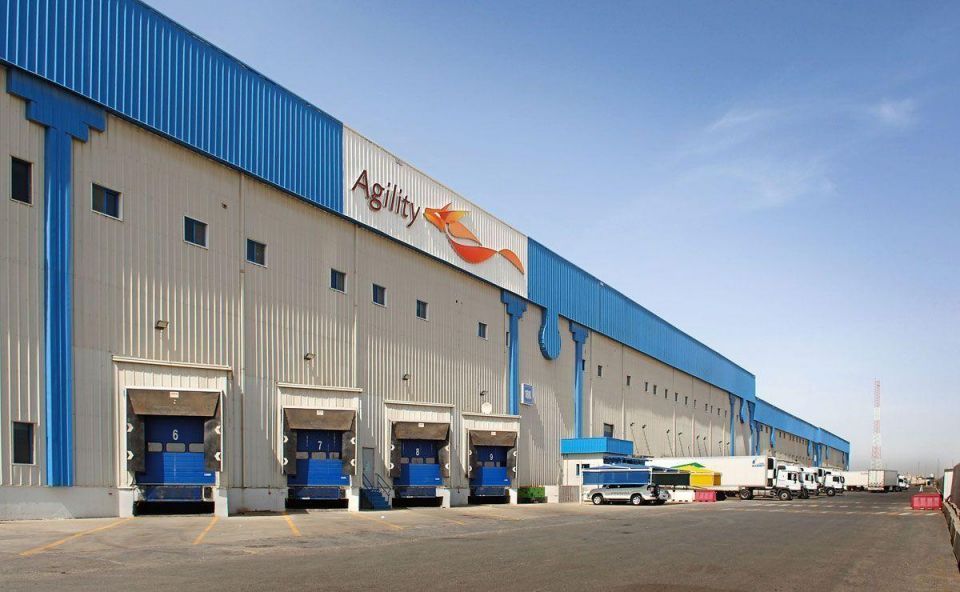Agility reported second-quarter earnings of 13.8 fils per share on net profit of KWD20mn, an increase of 18.7% over the same period in 2017. Agility EBITDA grew 13.6% to KWD37.1mn. Revenue increased 12.3% to KWD384.2mn.
First-half earnings of 26.9 fils per share and net profit of KWD38.9mn were up 24%. First-half EBITDA was KWD74.8mn, an increase of 18%. Revenue for the first half was KWD756mn, an increase of 14.1%.
Tarek Sultan, Agility vice chairman and CEO, said: Our second quarter results were in line with expectations and consistent with the previous growth trend the company has been seeing. Agilitys Infrastructure companies performed well, as did our logistics business, which witnessed another quarter of volume and revenue growth despite margin pressure.
Agility Global Integrated Logistics (GIL)
Global Integrated Logistics (GIL) business strategy of effective trade lanes development, productivity optimisation and defined tailor-made solutions to customers continued to generate favourable results. GIL gross revenue grew 13.4% to KWD289.3mn. Net revenue rose 5% to KWD66.7mn, primarily due to growth in Freight Forwarding and Contract Logistics. The respective revenue and net revenue growth rates for the first half were 14.5% to KWD567.4mn and 6.4% to KWD131.3mn.
Air freight continued its strong performance in Q2, driven by solid volume growth of 14% and stable yields compared to the same period of last year. Air freight net revenue grew 21.9% in Q2 and 20.3% in the first half. Ocean freight had consistent volume growth but with lower yields. In Q2, container volume increased 8.2% vs. Q2 2017. Ocean freight net revenue grew 7.4% in Q2 and 7.3% in the first half.
Regionally, Air freight and Ocean freight performance was strongest in the Americas, Asia Pacific, and Europe.
Contract Logistics continued its steady growth, primarily in the Middle East and Asia Pacific, as a result of new business and effective utilisation of facilities. Contract Logistics net revenue grew 3.2% in Q2 and 4.5% in the first half.
GIL’s net revenue margin was 23% in Q2, down from 24.9% a year earlier due to yield degradation in Road freight and Project Logistics, primarily in the Middle East and Europe. GILs EBITDA reached KWD9.3mn in Q2, and its EBITDA margin was 3.2%, slightly lower than 3.6% in Q2 2017. In the first half, EBITDA grew 13.3% to KWD16.8mn. EBITDA margin in the first half remained flat at 3% vs. the same period in the previous year.
GIL is accelerating its digital transformation to increase the efficiency of its business processes, gain business insights, develop innovative logistics solutions, differentiate its products and better connect to its customers,
Agilitys Infrastructure Companies
Agilitys Infrastructure group EBITDA rose 16.8% (after adjusting for the impact of the US government settlement in 2017), to KWD31.3mn in Q2. Revenue grew 9.5% to KWD97.5mn. For the first half of 2018, EBITDA grew by 20.1% and revenue by 14.8%. All entities in the group contributed to this performance.
Agility Industrial Real Estate continues to improve the efficiency of its operations in Kuwait. It also concluded its Phase I development in Riyadh of 80sqkm of warehousing capacity and started with Phase II, for which an additional 120sqkm will be delivered next year. Expansion in Africa is progressing according to plan as Agility Industrial Real Estate moves ahead with its development in Ghana and prepares to start new developments in Mozambique, Nigeria and Cote dIvoire.
Tristar continues to expand its fuels operation with existing customers. Tristar is also investing and diversifying its operations by expanding in shipping and broadening its geographic reach.
National Aviation Services (NAS) operations in Kuwait are generally stable. NAS operations in Cote dIvoire and Afghanistan continue to be positive contributors to the group. In addition, NASs new operation in Uganda has contributed significantly in 2018. Operations in Tanzania and Morocco continue to bear down on our group, but Tanzania is poised for a turnaround in 2018 and has numerous opportunities in the pipeline.
GCS, a company specialised in digitising customs, showed improved performance in the second quarter. GCS manages all customs activities at ports of Kuwait and aims to enhance customs modernisation through its services.
UPAC revenue and profits increased during the second quarter. Operations at Kuwait Airport and other prominent locations in Kuwait continue to drive growth. In addition, construction of Reem Mall in Abu Dhabi is moving forward according to plan.

